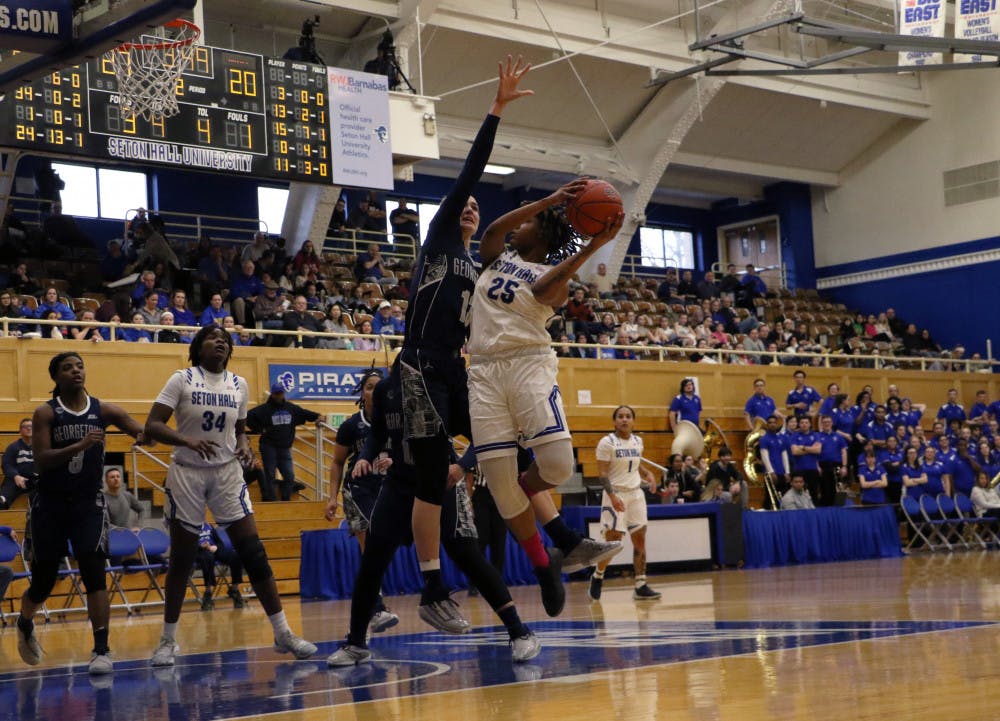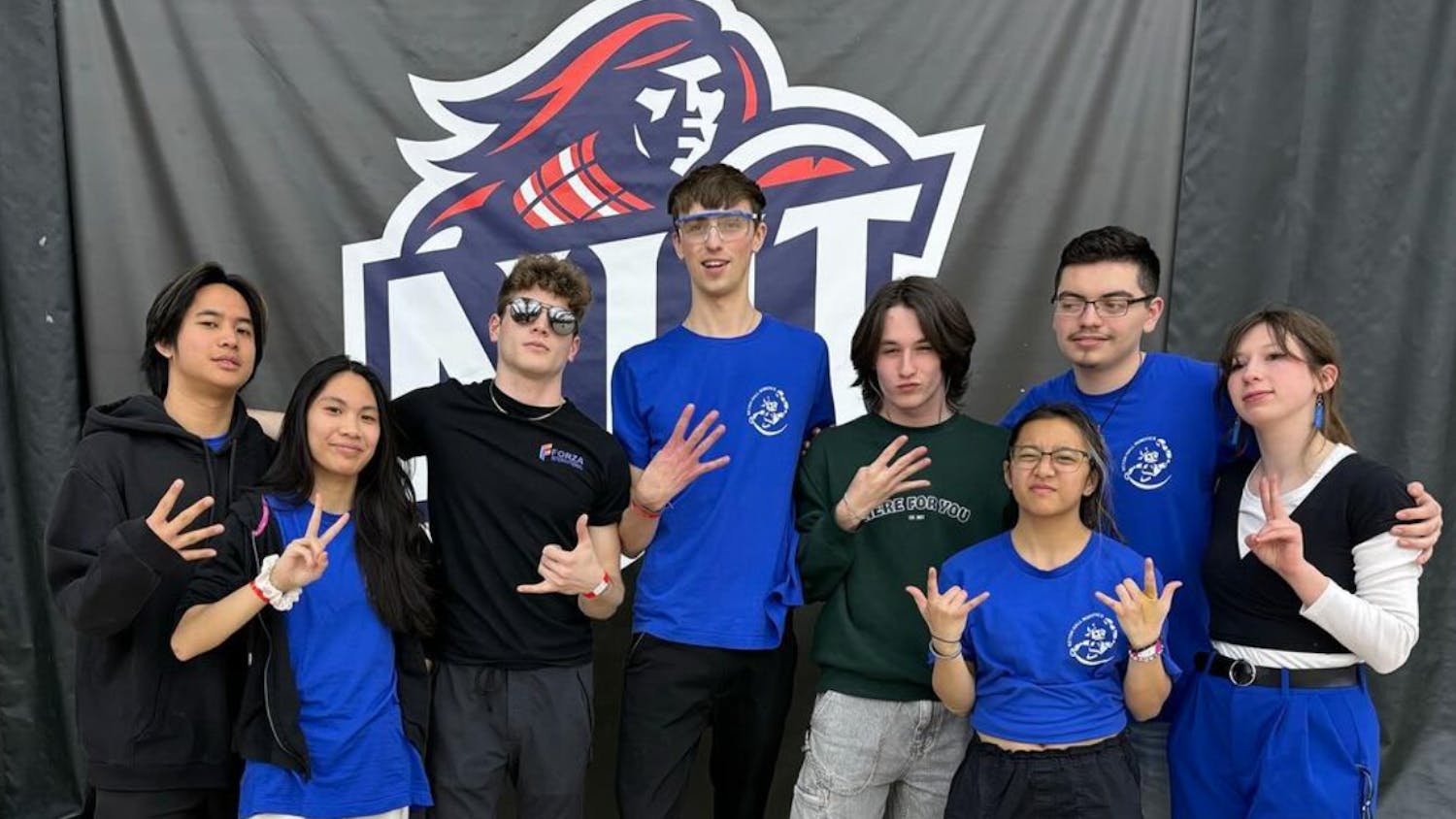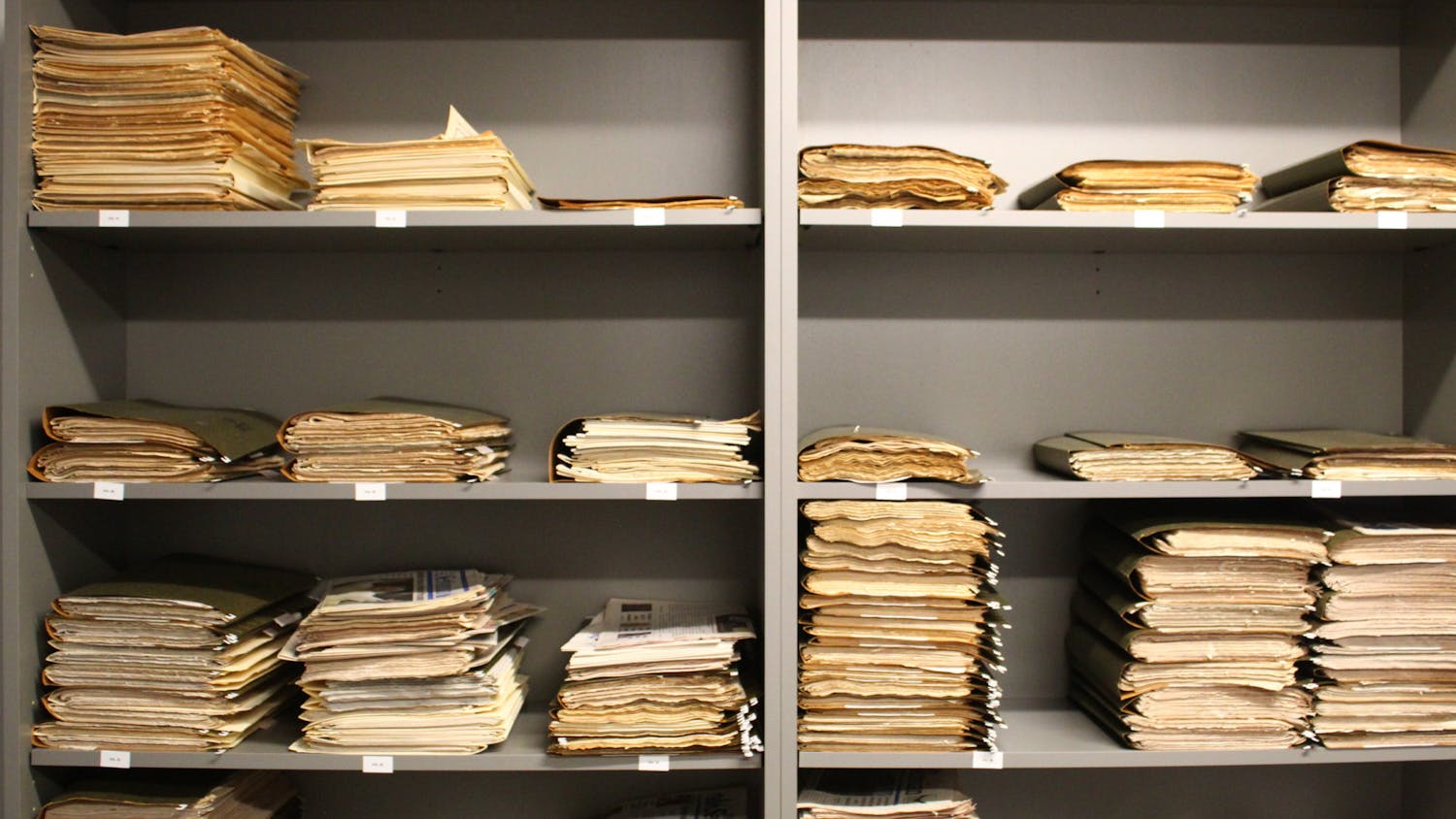The Seton Hall student who had been studying in Cairo, Egypt has returned to the United States and is, once again, enrolled in classes.
Ousman Laast-Maiga, a junior Diplomacy major, was living in Cairo from Aug. 26, 2010 to Feb. 2, 2011. He was at the American University in Cairo to study Arabic, and originally had planned to stay until the end of the spring semester. However, due to the anti-governmental protests taking place in the nation, Laast was forced to leave the country sooner than planned.
Laast-Maiga said his experience in Egypt had two distinct phases, one being the fall semester when he lived on-campus, and the second during break when he was living in a residential area. He said it was during his winter break that he really got to experience the protests first hand.
"That's when I had a lot more of a chance to experience Cairo and experience the culture, and in a way, be a part of the protests once they started," Laast-Maiga said. "I definitely got a better vantage point on the protests, more like the average Egyptian."
Laast-Maiga said he became "an unwitting participant in the protests" around Jan. 25 when he and his friends were on the metro and saw a car that had just blown up.
"It was billowing fire, really intense, and so we kind of got an uneasy feeling about the whole situation and said ‘Ok, I think we should turn around,'" he said.
After this occurrence, Laast-Maiga and his companions left the metro station and unknowingly walked into a large demonstration.
"People were marching, they had stopped all the traffic because there were so many people, and they were just chanting, cheering and just saying ‘Down with Mubarak,'" he said. "It was definitely beautiful, and you just felt happy for the people."
Though Laast-Maiga said the situation was mainly between the Egyptians and their government, the repercussions of living in what he called a "police state" still impacted him directly. He was interrogated by the Egyptian police on two separate occasions.
"Just because of my skin tone [the police] were wondering, you know, if I was Sudanese, where I was from," he said. "I was held for about half-an-hour each time. I was interrogated, and in both situations, the police officers were illiterate. I had a copy of my passport on me and they sort of just didn't know what it was."
He also said, though the experience was mainly positive, there were some points where he was nervous. "There were individual men in the streets who decided that they had to take it upon themselves to protect their area and so you had people with home-made weapons; brooms with butcher knives on the ends, machetes, just walking through the streets," he said.
According to Laast-Maiga, as average Egyptian citizens geared up to protect themselves and their families, police began to disappear. They were replaced by a "strong" military presence.
"There were tanks right outside of my house, and that was just a show of force. About two weeks later, before I came back there were fighter jets flying above my house two days in a row," he said.
"They would fly very low so it shook the whole building just as posturing; they definitely couldn't use tanks, they couldn't use fighter jets on anyone."
During this time, Laast-Maiga found it almost impossible to communicate with his family and friends in the U.S.
"For about two weeks we didn't have any cell phone service, any internet service so it was really very isolated," he said. "Our TV barely worked. I was very isolated in terms of the larger picture of the situation."
Even before the internet was shut down, everyone was cautious about their interactions with the outside world, Laast-Maiga said.
"People would ask us what our situation was like or how we were doing, and a common response, it was a bit of a joke, was ‘Wonderful, read the news,' being a bit sarcastic because honestly we didn't know who was reading it, and what they would do," he said. "I honestly didn't feel too threatened but, then again, you didn't know."
At the end of his time in Egypt, Laast-Maiga was finally able to contact his family.
"I have to say that my parents were fantastic in that they really trusted my judgment and they were aware that things can be a bit overblown," he said. "My mom is from Ghana, my Dad is from Niger and they both had coups when they were younger, and they lived through them so they definitely understood the situation and I think to an extent they were maybe even a bit excited that I was experiencing this."
According to Laast-Maiga, he decided to return to the U.S. because the American University postponed classes multiple times.
"I didn't feel that I could rely on school opening up again in a decent amount of time to begin classes there and, even more so, if the situation got worse and if it did become a mandatory evacuation I felt that I wouldn't be able to come back to Seton Hall and enroll in classes," he said. "My desire to get back to school and to have some semblance of a semester really helped me make my decision."
Laast-Maiga left Cairo on Feb. 2 and was flown to Frankfurt, Germany, before returning to the U.S. Though his time in Egypt ended abruptly, he said it was a positive learning experience, and he appreciates the time he spent in the country.
"We definitely do the Arab world a disservice by just sort of labeling the culture as extremist and anti-democratic and anti-western because, frankly, I feel like a lot of them love our culture," he said. "They don't agree with everything we do, and I wouldn't expect them to but they definitely appreciate our values, appreciate our freedoms and want similar things to themselves."
Before his time in Egypt, Laast-Maiga studied in Tunis, Tunisia, as a Critical Language Scholar for the U.S. Department of State in June and July. He had been living in North Africa for about six months.
"Seton Hall has been fantastic through helping me and supporting me get back. It is good to be home," he said.
Alyana Alfaro can be reached at alyana.alfaro@student.shu.edu.





